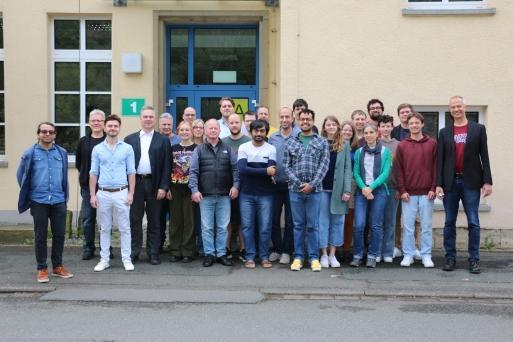Historic Physics Award for CERN Experiments
International research conducted at CERN has received one of the world’s most prestigious scientific honors. The award recognizes the four major experiments ATLAS, ALICE, CMS and LHCb at the European Organization for Nuclear Research (CERN) in Geneva. Physicists from the University of Siegen have been integral to the ATLAS collaboration since its inception, contributing substantially to its success. Often dubbed the ‘Oscars of Science,’ the “Breakthrough Prize in Fundamental Physics” carries USD 3 million in reward for groundbreaking work in fundamental physics. The awards ceremony took place in early April in Los Angeles.
For more than 30 years, researchers from Siegen have worked on ATLAS alongside roughly 3,000 scientists from 200 institutions worldwide. “The award underscores the importance of international cooperation and the value of basic research—and it highlights how active and successful the University of Siegen is in this field. My warmest congratulations go to all colleagues involved,” said University of Siegen Rector Stefanie Reese.
The Siegen team contributes expertise in detector development, calibration, data analysis, and the training of young scientists. Students and doctoral candidates routinely work directly at CERN, either on site or through international partnerships. “The prize is a tremendous honor and a recognition of our research achievements in recent years,” noted Professor Markus Cristinziani, spokesperson for Siegen’s ATLAS group.
At CERN, researchers strive to discover new particles and to study the properties and interactions of known elementary particles, seeking answers to open questions in fundamental physics. One milestone was the 2012 discovery of the Higgs boson—the particle that gives other particles mass, enabling the existence of stars, planets and people. This breakthrough was achieved at the Large Hadron Collider (LHC), the world’s most powerful particle accelerator.
The Siegen team is also heavily involved in “Color meets Flavor,” a proposed Cluster of Excellence that unites the universities of Bonn and Dortmund with Forschungszentrum Jülich. The initiative aims to deepen interdisciplinary cooperation within North Rhine Westphalia and strengthen links across research areas.


